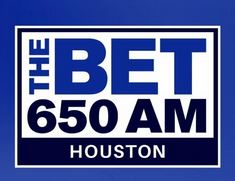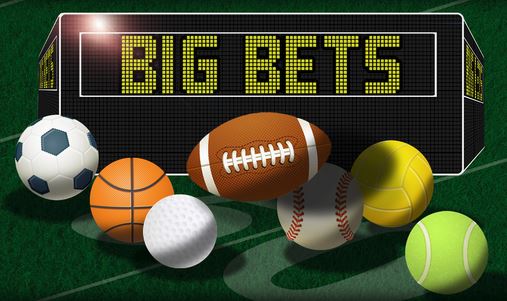Podcast: Play in new window | Download
Subscribe: RSS
A recent sports headline really caught my eye. It said that sports betting on NFL games this fall will rise 30% over last year.

Today’s technology allows (and even encourages) sports wagering from the comfort of your own home. Many will download an app onto their phone to allow nearly instantaneous wagering on the team they expect to win along with any number of possible in-game occurrences (called “prop bets”).
Most of us are quite familiar with Super Bowl office pools which randomly assign “squares” for the quarterly and final scores. Then fantasy football leagues began to proliferate over the past few decades to get more people involved in keeping up with the NFL on a weekly basis.
More recently, wagering on NFL and college football games (and many other sports) has been legalized in 38 US states plus Washington, DC and Puerto Rico. State budgets want their share of this rapidly increasing pool of dollars coming from sports wagering, too.
One study showed that more than 50 million Americans bet more than $16 billion on the February, 2023 Super Bowl game alone. An on-line betting service took more than 50,000 bets per minute during that football game.

In July, 2023, the American Psychological Association expressed concerns about the youthful 21-24 year old age group being the fastest growing segment of sports gamblers. Impulsivity will drive some to gamble on such things as who wins the coin flip or how many field goals will be kicked during a game.
Unlike other type of addictions which have been studied for decades, the effects of this recent surge in sports betting are being researched in real-time. Parents and schools often attempt to caution students with warnings about alcohol, tobacco/smoking, and drug abuse. Sports betting and on-line gambling are becoming a growing issue among younger adults.
Temptation isn’t far away
You can’t miss the blitz of television advertisements for the growing number of sports betting services each weekend. The internet has provided the potential for privacy and instantaneous sports betting opportunities for anyone with a credit card.
As I covered in February, 2022, a growing number of sports talk radio stations across the US are being converted to 24/7 sports betting promotional tools as well.

The BetQL Network now features 80 radio stations – mostly in cities which are home to major league sports franchises. Even though the state of Texas has yet to approve on-line sports betting, Houston radio station KIKK 650-AM dropped CBS Sports Radio a few years ago in favor of the BetQL Network. The daily radio schedule is non-stop talk pumping sports and, of course, betting line information. Houston gamblers (not the former XFL football team) usually drive eastward to Lake Charles or northeast to Shreveport in Louisiana to place their sports bets.
The BetQL system is available for online sports betting for as little as $19.99/month for one sport. Not to be outdone, ESPN got into the act in early 2023. PENN Entertainment agreed to pay ESPN $1.5 billion over a ten year period for their new marketing partnership. On the ESPN website, you may have noticed a new tab for ESPN BET.
Similar providers include BetMGM, FanDuel, DraftKings, and Caesars Sportsbook, among others.
Through the first five months of 2024, revenue generated by companies from sports betting in the 38 states (plus DC and Puerto Rico) reached $5.7 billion, an increase of nearly 25% over the same period in 2023 according to an industry promoter, the American Gaming Association.

The states which have embraced sports gambling have generated new tax revenues for states without politicians having to ask voters for higher income and/or sales taxes. The US Census Bureau reported that sports betting generated $506 million in state tax revenues during the third quarter of 2023, up 20.5% compared to the same quarter in 2022.
So, the sports betters and their on-line providers seem happy. State revenues are up, so they seem happy, too.
What could possibly go wrong?

Plenty.
A recent report from UCLA and USC showed a substantial increase in bankruptcy rates, debt collections, debt consolidation loans, and auto loan delinquencies occurring in states which offer legal sports betting.
Research indicates that people who engage in sports betting appear to develop gambling problems at particularly high rates. Sports gamblers are also at a higher risk for mental health and substance use problems compared with other kinds of gamblers.
About 14% of sports bettors have reported thoughts of suicide and 10% said they had made a suicide attempt according to a New Jersey research study.
The executive director of the National Council on Problem Gaming has called problem gambling a “ticking time bomb.”
Unlike billions of federal dollars dedicated to drug, alcohol, and tobacco addictions, no federal funds are currently earmarked for problem gambling research or treatment.

One study of online sports gamblers indicated that 16% met clinical criteria for gambling disorder and another 13% showed some signs of gambling problems.
Young men in low-income communities have proven to be the most vulnerable.
They have experienced higher financial distress, higher rates of bankruptcy, more usage of consolidation and unsecured loans, and more credit card delinquencies than others in the states which have legal sports gambling. With a lower credit score, they also find it more difficult to be approved for a future home mortgage, auto loan or credit card.
Though older research showed “only” 1% of the US population was dealing with a gambling problem, that percentage is likely on the upswing. Unfortunately, most people with gambling addiction don’t self-report or seek treatment so the true number is likely higher.
Need a bankruptcy attorney? Call 1-800-YO-MONEY!!!

With Americans projected to spend a record $35 billion on legal bets during this NFL season (up from $27 billion last year), business is also booming for personal bankruptcy attorneys.
As online sports books have made gambling easier and more accessable, some attorneys say it has pushed clients into Chapter 7 or Chapter 13 bankruptcy.
Walter Metzen, a Detroit attorney, has watched clients blow through their 401(k) accounts by gambling and then later contemplated suicide.
“I never used to see it,” said Metzen. “This is a phenomenon in the last five years.”
He added that the problems are most pronounced among men ages 21-35.
Surprisingly (at least to me), debt related to gambling is traditionally dischargeable in bankruptcy. The rationale is that gambling debt is not typically accrued in bad faith and is often discharged by bankruptcy judges.
“They intended to pay it off,” said attorney Walter Metzen. “They didn’t gamble intending to lose.”
This isn’t always the case, though. In a recent ruling, a US Bankruptcy Court in New Jersey declined to dismiss a sports gambling case, writing that “Poor judgment does not translate to bad faith.”
Consensus Tips

If you or someone in your immediate family has other addiction problems, the safest idea is simply to avoid sports betting altogether.
For those who still wish to proceed, most professional services suggest that you should ease in slowly and with a dollar amount you can easily afford to lose. Your initial “bankroll” should be an amount of money within your means and that you are comfortable losing.
Let’s say $100 for the NFL season. (Yes, I really am that cheap!)
Once you set aside a bankroll to potentially lose, the professionals suggest that you should risk no more than 5% of your total amount on any wager. If you’re starting the football season with just a $100 bankroll, your biggest bet should be $5.
If you should happen to end the season on the plus side, congratulations! If you lost money, consider yourself fortunate to have minimized your losses in advance. You will learn a lot in the process.
Much like drinking, the biggest problems seem to arise once a sports better begins to spend more and more money trying to cover losses. Stick with your initial game plan. Never exceed your predetermined bankroll for the season and accept the outcome.
I’ll add one more. If you stop enjoying watching football games, QUIT GAMBLING IMMEDIATELY!
*If you or someone you know has a gambling problem, call 1-800-GAMBLER for crisis counseling and referral services.

